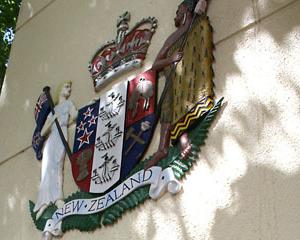
The four, who were all charged early last month with a single felony count of dismembering a human body, stood quietly as the prosecutor announced the additional charges.
The indictment, which was handed down on Wednesday, and additional charges were expected.
Authorities for weeks have discussed the alleged scheme that involved digging up and dumping remains at the Burr Oak Cemetery in Alsip and stacking burial vaults on top of each other in order to resell the plots.
Prosecutors have said the scheme netted each of the participants about $300,000, and each is charged with two counts of theft of $100,000 to $500,000. The four no longer work at the cemetery.
The most serious charge each faces, dismembering a human body, carries a maximum sentence of 6-30 years in prison.
According to the indictment, the scheme went on from September 2003 until it was exposed in July and the four workers were arrested.
Prosecutors said at Thursday's hearing that more than 1,100 human bones have been found scattered about the historic black cemetery where many prominent figures were buried, including blues singers Willie Dixon and Dinah Washington, boxing champion Ezzard Charles and Emmett Till, the Chicago teen whose lynching in 1955 was a seminal moment in the civil rights movement.
When word broke that graves had been dug up, thousands of people descended on the cemetery to see if their loved ones' remains had been disturbed.
Authorities have said it doesn't appear the graves of the cemetery's famous inhabitants were disturbed.
One of those charged, Carolyn Towns, was accused of pocketing money collected for a Till memorial museum but she has not been charged in connection with that alleged scheme.
Prosecutors said on Thursday that none of the charges unveiled on Thursday pertained to Till.
Towns, Keith Nicks and Terrence Nicks remain in custody and Maurice Dailey is out on bail.
After the hearing, Dailey's attorney, Thomas Needham, portrayed Dailey as a low-level employee who only did as he was told by his superiors. He said Dailey did not take part in a scheme that authorities have said netted the participants about US$300,000 ($NZ447,000).
Needham said that since the early 1980s, the 59-year-old Dailey occasionally found bones when he was digging graves. Each time, said Needham, Dailey notified a foreman.
And each time, he was told that those graves had been, in effect, leased for 50 years, a less expensive practice for people with little money, and that those leases had run out.
"He was told it's OK to go ahead and move those bones," Needham said.
Needham said the message to Dailey and other employees was similar in 2005 when utility workers discovered some human bones. Alsip police were called but no charges were ever filed.
Instead, said Needham, "The people that did the heavy lifting at Burr Oak were told, 'From now on, whenever you find these bones, just go ahead and put them in this part of the cemetery.' He was told that. This was not a decision that Maurice Dailey was making."











